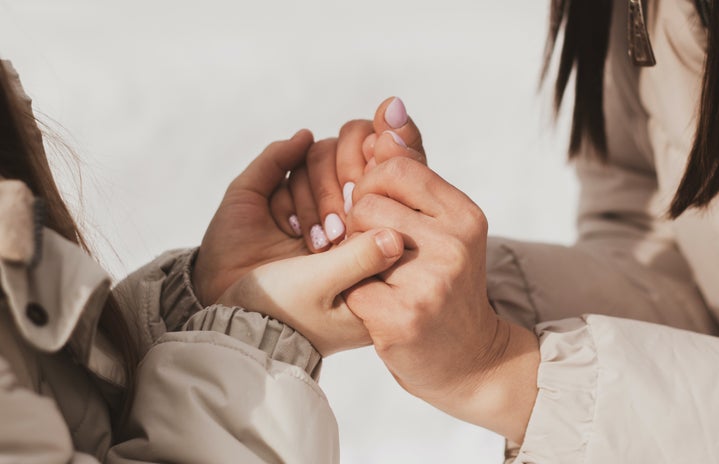Warning this article contains spoilers.
So unless you’ve been living under a rock you will have heard of the new Netflix romcom
series Nobody Wants This is starring Kristen Bell and Adam Brody. The series centres the
unlikely relationship between Joanne, a podcast host, and Noah, a progressive rabbi, as they
navigate the challenges of their cultural differences as well as past relationship trauma.
Whilst from a romcom perspective this show is completely binge-worthy, the show also
takes on a deeper phycological element when we unpack the different attachment styles of
the characters.
So what is attachment theory?
Attachment theory explains how each individual develops emotional bonds and
relationships with others. According to this theory there are four main attachment styles:
secure, anxious, avoidant and disorganised.
Secure Attachment
As if we couldn’t love the Gilmore Girls heartthrob any more, Adam Brody’s portrayal of
Noah, the compassionate and wildly attractive Rabbi elevates him to the pinnacle of the
ideal romcom leading love interest. But what has really centred the social media debates
about the likability of the character, is his secure attachment style. Individuals with a secure
attachment style tend to feel comfortable with intimacy and trust their partners. They
communicate their needs openly, resolve conflicts effectively, and provide emotional
support to their partners. Throughout the series we can see Noah embodying many of these
traits.
On his first date with Joanne, Noah makes clear his desires for “something real”, clearly
signalling his ability to communicate his feelings and intentions towards Joanne. He goes out
of his way to accommodate Joannes needs, whether that means stopping at a sex shop on
their first date to help her prepare for an upcoming podcast product review or ensuring
their hotel for a mini-break has two bathrobes so they can match. These thoughtful gestures
showcase his respect and care for her.
But this is not to say Noah is perfect, as none of us are. We see glimmers of his tendency to
people please through his interactions with his mother as well as with the Head Rabbi of the
Temple. Yet, what makes Noah so likable is his ability to adapt and grow. After Joanne
leaves the Jewish camp, following Noah’s nervousness about introducing her—a gentile—as
his girlfriend in front of the Head Rabbi, he reflects on the implications of his actions for
their future. He surprises her at a business meeting, asking her to be his girlfriend while also
embracing his culture by sharing her first experience of Shabbat. This moment beautifully
illustrates his journey toward balancing personal growth and cultural identity.
Avoidant Attachment
From the outset of her relationship with Noah, Joanne expresses a palpable fear of
commitment, underscoring her avoidant attachment style. Those with an avoidant
attachment style often value independence and self-reliance. They may feel uncomfortable
with closeness and struggle with emotional intimacy. They tend to downplay the importance
of relationships and may avoid relying on others.
A particularly telling moment occurs when Noah meets Joanne’s parents for the first time.
Noah, being raised in a traditional family, had sought to impress Joanne’s family in a
respectful manner, putting on a ‘sports jacket’ and bringing a bouquet of flowers for
Joanne’s mother. This seemingly nice, yet cringe-worth scene, leaves Joanne feeling
awkward and practically recoiling from the ‘ick’.
Yet, whilst Joanne’s initial reaction was to break up from Noah and run, she pushes through
this initial discomfort. she chooses to confront her feelings instead, embracing the notion
that imperfect relationships can still hold value. This decision marks a significant step in her
character arc as she learns to navigate the complexities of commitment.
This progression of Joanne’s ability to overcome her fears in her relationship transcends the
rest of the season with examples of her attempting to be more trusting and selfless
ultimately strengthening her as a character. She grapples with trust issues like resisting the
initial fear of Noah’s supposed betrayal with Rebecca by searching through his phone as well
resisting the temptation of rummaging through the box of Rebecca’s personal items.
The pinnacle of her character development—and love for Noah—comes when she is willing
to sacrifice their relationship to support his dream of becoming Head Rabbi. This act of
selflessness highlights not only her emotional growth but also the deep bond they share,
illustrating that true love often requires navigating discomfort and embracing vulnerability.
Anxious Attachment
Now love her or hate her but Rebecca (Noah’s ex-girlfriend) depicts some of the qualities of
an anxious attachment. People with an anxious attachment style often worry about their
partner’s availability and responsiveness. They may crave closeness and reassurance but can
be overly dependent or clingy. They fear rejection or abandonment and may interpret their
partner’s actions as signs of possible rejection.
We are first introduced to Rebecca at her and Noah’s home, when upon questioning, she
admits to having found his hidden key to his private drawer and discovering g a wedding
ring which Noah had purchased. Just to be clear – Noah had not proposed to Rebecca, she
had found the ring herself and had begun wearing it.
Unlike Noah and Joanne, arguably it was Rebbeca’s lack of growth and understanding as to
why she had crossed a major boundary with Noah which ultimately makes her an unlikable
character. After Noah had broken up with her, she becomes hyper fixated on Joanne and
Noah’s relationship. She even goes so far as to spread lies to Joanne’s sister, Morgan, in an
attempt to sabotage Joanne and Noah’s budding romance. . Her jealousy intensifies when
Joanne begins to bond with Esther, Noah’s sister-in-law and Rebecca’s former best friend.
Ultimately Rebecca’s overdependence on her past relationship with Noah is what maintains
her status as an almost stagnant, unlikable character throughout the duration of the first
season.
So, from watching the show, it becomes clear that it isn’t merely our attachment style that
influences the longevity and happiness of our relationships, but rather our capacity for
adaptability, growth, and self-awareness.
You can use this link to take the attachment style quiz here:
What Is My Attachment Style? Take the Quiz (verywellmind.com)

